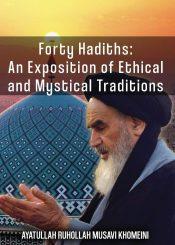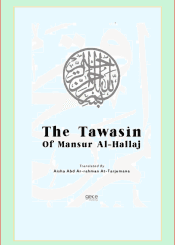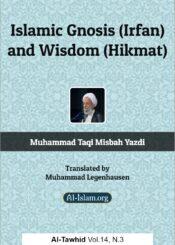An Introduction to 'Irfan

An Introduction to 'Irfan
Author :
Publisher :
Publish number :
First
Publication year :
2008
Number of volumes :
1
ISBN :
1546864687, 9781546864684
(0 Votes)

(0 Votes)
An Introduction to 'Irfan
Theoretical 'irfan, as said before, is concerned with ontology, and discusses God, the world, and the human being. This aspect of 'irfan resembles theological philosophy (falsafeh-ye ilahi), which also seeks to describe being. Like theological philosophy, 'irfan also defines its subject, essential principles and problems, but whereas philosophy relies solely upon rational principles for its arguments, 'irfan bases its deductions on principles discovered through mystic experience (kashf) and then reverts to the language of reason to explain them. The rationalistic deductions of philosophy can be likened to studying a passage written originally in the same language; the arguments of 'irfan, on the other hand, are like studying something that has been translated from some other language in which it was originally written. To be more precise, the 'arif wishes to explain those things which he claims to have witnessed with his heart and his entire being by using the language of reason. The ontology of 'irfan is in several ways profoundly different from the ontology of philosophers. In the philosopher's view, both God and other things have reality, with the difference that while God is the Necessary Being (wajib al-wujud) and Existing-By-Himself, things other than God are only possible existents (mumkin al-wujud), existing- through-another, and are effects of the Necessary Being. However, the 'arif's ontology has no place for things other than God as existing alongside Him, even if they are effects of which He is the cause; rather, the Divine Being embraces and encompasses all things. That is to say, all things are names, qualities, and manifestations of God, not existents alongside Him. The aim of the philosopher also differs from that of the 'arif. The philosopher wishes to understand the world; he wishes to form in his mind a correct and relatively complete picture of the realm of existence. The philosopher considers the highest mark of human perfection to lie in perceiving, by way of reason, the exact nature of existence, so that the macrocosm finds a reflection within his mind while he in turn becomes a rational microcosm. Thus it is said when defining philosophy that: [Philosophy is] the (final) development of a rational knower ('alim) into an actual world ('alam). This means that philosophy is a study whereby a human being becomes a rational microcosm similar to the actual macrocosm. But the 'arif, on the other hand, would have nothing to do with reason and understanding; he wishes to reach the very kernel and reality of existence, God, to become connected to it and witness it. In the 'arif's view, human perfection does not mean having a picture of the realm of existence in one's mind; rather it is to return, by means of treading the spiritual path of progression, to the origin from which one has come, to overcome the separation of distance between oneself and the Divine Essence, and, in the realm of nearness, to obliterate one's finite self to abide in Divine Infinitude. The tools of the philosopher are reason, logic and deduction, while the tools of the 'arif are the heart, spiritual struggle, purification and disciplining of the self, and an inner dynamism. Later, when we come to the world-view of 'irfan, we shall also discuss how it differs from the world-view of philosophy. 'Irfan, both practical and theoretical, is closely connected with the holy religion of Islam. Like every other religion - in fact more than any other religion - Islam has explained the relationships of man with God, with the world, and with himself; and it has also given attention to describing and explaining existence. Now, the question inevitably arises here about the relation between the ideas of 'irfan and the teachings of Islam. Of course, the 'urafa' never claim that they have something to say that is above or beyond Islam, and they are earnest in their denials of any such imputations. In fact, they claim to have discovered more of the realities of Islam, and that they are the true Muslims. Whether in the practical teaching of 'irfan or the theoretical, the 'urafa' always support their views by referral to the Quran, the Sunnah of the Prophet and the Imams, and the practice of the eminent amongst the Prophet's Companions. However, others have held different views about the 'urafa', and these may be mentioned: (a) A group of muhaddithun and jurisprudents has been of the view that the 'urafa' are not practically bound to Islam, and that their referrals to the Quran and the Sunnah are merely a ruse to deceive the simple-minded people and to draw to themselves the hearts of the Muslims. This group is of the view that 'irfan, basically, has no connection with Islam. (b) A group of modernists who do not have favourable relations with Islam and are ready to give a tumultuous welcome to anything that gives the appearance of freedom from the observances prescribed by the Shari'ah (ibahah) and which can be interpreted as a movement or uprising in the past against Islam and its laws, like the first group, believe that in practice the 'urafa' had no faith or belief in Islam, and that 'irfan and tasawwuf was a movement of the non-Arab peoples against Islam and the Arabs, disguised under the robes of spirituality. This group and the first are united in their view that the 'urafa' are opposed to Islam. The difference between them is that the first group considers Islam to be sacred and, by banking on the Islamic sentiments of the Muslim masses, wishes to condemn the 'urafa' and, in this way, to hoot them off from the stage of the Islamic sciences. The second group, however, by leaning on the great personalities of the 'urafa'- some of whom are of world-renown - wishes to use them as a means of propaganda against Islam. They detract Islam on the grounds that the subtle and sublime ideas of 'irfan found in Islamic culture are in fact alien to Islam. They consider that these elements entered Islamic culture from outside, for, they say, Islam and its ideas thrive on a far lower level. This group also claims that the 'urafa's citations of the Quran and hadith were solely due to dissimulation and fear of the masses. This, they claim, was a means for them to save their lives. (c) Besides the above two, there is also a third group which takes a rather neutral view of 'irfan. The view of this group is that 'irfan and sufism contain many innovations and deviations that do not accord with the Quran and the traditions; that this is more true of the practical teaching of 'irfan than its theoretical ideas, especially where it takes a sectarian aspect. Yet, they say, the 'urafa', like the Islamic scholars of other ranks and the majority of Islamic sects, have had the most sincere intentions towards Islam, never wishing to make any assertions contrary to its teachings. It is quite possible that they have made mistakes, in the same way as the other types of scholars - theologians, philosophers, Quranic commentators, and jurisprudents - have made mistakes, but this has never been due to an evil intention towards Islam. In the view of this group, the issue of the 'urafa's supposed opposition to Islam was raised by those who harbored a special prejudice either against 'irfan or against Islam. If a person were to disinterestedly study the books of the 'urafa', provided that he is acquainted with their terminology and language, although he might come across many a mistake, he will not doubt the sincerity of their complete devotion to Islam. Of the three views, I prefer the third. I do not believe that the 'urafa' have had evil intentions towards Islam. At the same time I believe that it is necessary for those having specialized knowledge of 'irfan and of the profound teachings of Islam to undertake an objective research and disinterested study of the conformity of the issues of 'irfan with Islamic teachings. Shari'ah, Tariqah and Haqiqah One of the important points of contention between the 'urafa' and the non-'urafa', especially the jurisprudents, is the particular teaching of 'irfan regarding the Shari'ah, the Tariqah (the Way) and the Haqiqah (the Reality). Both agree in saying that the Shari'ah, the body of Islamic laws, is based upon a series of realities and beneficial objectives. The jurisprudents generally interpret these goals to consist of certain things that lead the human being to felicity, that is, to the highest possible level of benefit from God's material and spiritual favors to man. The 'urafa', on the other hand, believe that all the paths end in God, and that all goals and realities are merely the means, causes and agencies that impel the human being towards God. The jurisprudents say only that underlying the laws of the Shariah is a series of benign objectives, that these objectives constitute the cause and spirit of the Shari'ah, and that the only way of attaining these objectives is to act in accordance with the Shari'ah. But the 'urafa' believe that the realities and objectives underlying the laws of the Shari'ah are of the nature of stations and stages on the human being's ascent towards God and in the process of man's access to the ultimate reality. The 'urafa' believe that the esoteric aspect of the Shari'ah is the Way, the Tariqah, at whose end is the Reality (al-Haqiqah), that is tawhid (in the sense mentioned earlier), which is a stage acquired after the obliteration of the 'arif's self and his egoism. Thus the gnostic believes in three things: the Shari'ah, the Tariqah, and the Haqiqah, and that the Shari'ah is the means to, or the shell of the Tariqah, and the Tariqah again is the means to or the shell of the kernel of Haqiqah. We have explained how the jurisprudents view Islam in the lectures on kalam. 1 They believe that the Islamic teachings can be grouped into three branches. The first of these is kalam, which deals with the principal doctrines (usul al-'aqa'id). In matters related to the doctrines it is necessary for the human being to acquire, through reason, shakeless belief and faith. The second branch is ethics (akhlaq). It sets forth the instructions about one's duty in regard to ethical virtues and vices. The third branch, fiqh, deals with the laws (ahkam), which relate to our external actions and behavior. These three branches of Islamic teachings are separate from each other. The branch of kalam is related to thought and reason; the branch of akhlaq is related to the self, its faculties and habits; and the branch of fiqh is related to the organs and limbs of the body. However, on the subject of doctrines, the 'urafa' do not consider merely mental and rational belief to be sufficient. They claim that whatever is to be believed in must be arrived at; one must strive to remove the veils between oneself and those realities. Similarly, with respect to the second branch they do not consider ethics to be adequate on account of its being static and limited. In place of a philosophical ethics, they suggest a spiritual methodology (sayr wa suluk) with its particular composition. Finally, in the third branch, they have no criticisms; only in specific instances do they express opinions that could, possibly, be taken as being opposed to the laws of fiqh. These three branches are, therefore, termed by the 'urafa' as Shari'ah, Tariqah, and Haqiqah. Yet they believe that in exactly the same way as the human being cannot be divided into three sections, that is, the body, the self, and reason, which are not separate from each other and form an indivisible whole of which they constitute inward and outward aspects, so it is with the Shari'ah, the Tariqah, and the Haqiqah. One is outward shell, another is inward kernel, and the third is the kernel of the kernel. There is a difference, however, in that the 'urafa' consider the stages of human existence to be more than three; that is, they believe in a stage that transcends the domain of reason. God willing, this shall be explained later.






